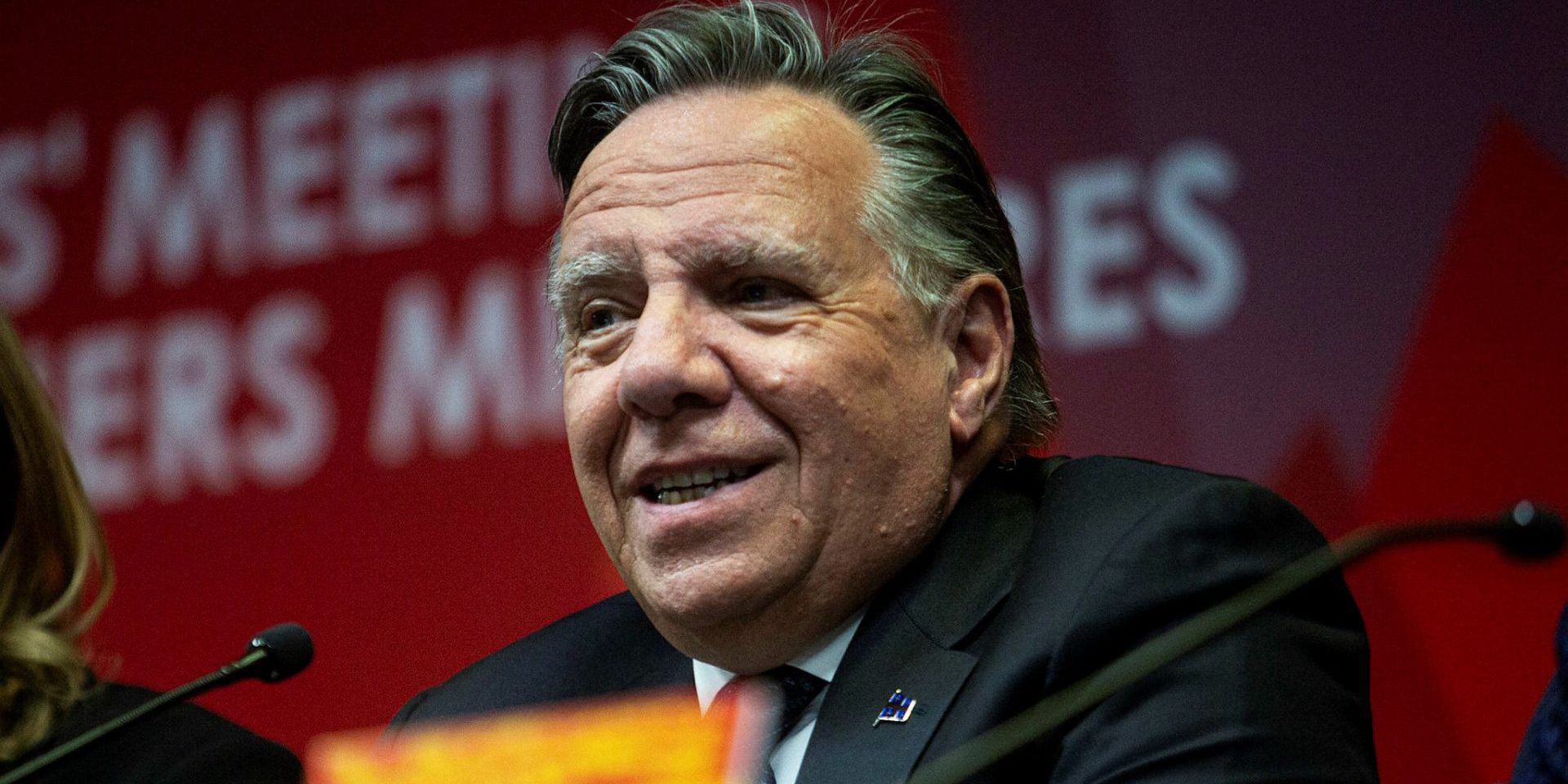Don’t pray in Quebec, but pray for Quebec

OTTAWA—Did you hear? The premier in Quebec wants to outlaw prayer in public. It sounds like a Saturday Night Live sketch, but it isn’t.
It seems this bullish push to enforce a neutral society builds on the previous laws to enforce nobody speaks anything but French, and no one can wear any religious symbols. Asking for a friend, but has anybody been prosecuted for wearing a gold cross?
If this were an SNL sketch, then let’s picture the scene. First Nations are at a pow wow in small-town Quebec wearing regalia, wearing their stories and identity, wearing their prayer about how they choose to be. And the event starts with the Elder singing and praying to bring people together in a good way, with balance and with good hearts. Nope, that’s illegal, line up for prosecution. How about the next village pancake breakfast which starts with a prayer by the respected pastor? That’s illegal. And the chaplains in hospitals are going to have to stop all that caring and praying, too. The next federal government event in Gatineau that starts with an Inuk Elder lighting the kulik? Illegal, if the premier of Quebec has his way.
In all seriousness, what happened to separation of church and state? It means that the state can’t force people to bow down to some god, and the opposite is also true—the government cannot force people stop practicing their spirituality. It’s unreasonable. It’s bad for democracy and community. And it’s also ludicrous.
Except for one proviso: no cults, please. Spirituality is a far cry from cults attempting to take over the world.
Is it highly ironic that an Indigenous columnist is fighting for the rights of rights of others? Actually it’s not at all ironic. When the lost ones fell upon the beaches of what would become Canada centuries ago, First Nations and Inuit did not indoctrinate them into their spiritual beliefs. No indoctrination here, that’s unethical. Unfortunately the churchy folks amongst the lost ones in those early days did not share that value of human choice, and deemed Indigenous Peoples the needy requiring a saviour. When the need to push spirituality is paired with the other unethical issue of the day being racism, bad things result such as Indian residential schools, etc.
When government decisions are not held to a high ethical standard, bad things result. Sounds so simplistic, and it could be rephrased with long words, but the meaning is the same. In First Nations communities on the West Coast it’s the grandmothers who retain the role of upholding leaders’ ethical decision making. It’s a key role in the good governance and civilization that has existed for thousands of years. The side-eye of a grandmother is the worst sign one could get as a leader. It’s the sign that a course correction must be made now. Who holds your departments and government to account for their ethics?
Leaders of this country’s democracy are called to protect the rights of all, not just the chosen few. Canada is a nation of immigrants and Indigenous Peoples. We are all in this thing together. It’s time for Quebec to learn from the values of Indigenous Peoples who graciously have given treaty to the newcomers to stay on their land, and to extend that same hospitality that you received historically to newcomers today.
The community of new Canadians coming and escaping from Islamic countries need to take their places in reconciliation. They also deserve the support of First Nations and Inuit in Quebec. We are in this fight for freedoms together.
Pray for the safety and freedoms of all Quebecers.
Rose LeMay is Tlingit from the West Coast and the CEO of the Indigenous Reconciliation Group. She writes twice a month about Indigenous inclusion and reconciliation. In Tlingit worldview, the stories are the knowledge system, sometimes told through myth and sometimes contradicting the myths told by others. But always with at least some truth.
The Hill Times






 LICENSING
LICENSING PODCAST
PODCAST ALERTS
ALERTS


